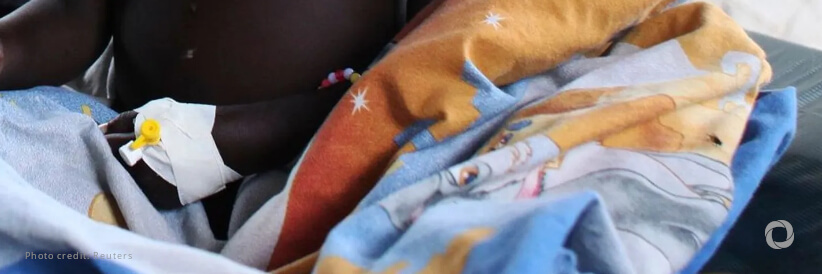More than 7,700 cholera cases – including over 1,000 cases in children under the age of five – and 185 associated deaths have been reported in Khartoum State since January 2025, according to health authorities. UNICEF and partners are working with the Federal Ministry of Health to curb the spread of the deadly disease and save lives.
Since the beginning of the brutal conflict, more than 3 million people have been forced to flee their homes in Khartoum State, and the violence has upended the lives of millions. With large parts of the state becoming more accessible, more than 34,000 people have returned to Khartoum State since the beginning of 2025. Most are returning to damaged homes in areas where basic services – including critical water and sanitation – are largely unavailable. More than one million children are estimated to live in the affected localities across Khartoum State.
Continuous attacks on power plants in Khartoum State over the past month have disrupted the electricity supply and worsened water shortages, significantly impacting access to safe and clean water. This has forced many families to collect water from unsafe and contaminated sources, increasing the risk of cholera and other deadly waterborne diseases, especially in overcrowded neighbourhoods and displacement sites. Cholera cases have surged significantly from 90 reported cases per day to 815 reported cases per day between 15 and 25 May – a nine-fold increase over just 10 days.
Additionally, two out of the seven localities in the State – Jebel Aulia and Khartoum – are at the risk of famine and account for 33 per cent of the 307,000 acutely malnourished children in the State. An estimated 26,500 of these children suffer from severe acute malnutrition, the deadliest form of malnutrition. For children already weakened by a lack of nutritious food, cholera or any other causes of severe diarrhoea can be fatal if not treated promptly.
“We are racing against time with our partners to provide basic healthcare, clean water, and good nutrition, among other lifesaving services, to children who are highly vulnerable to deadly diseases and severe acute malnutrition,” said Sheldon Yett, UNICEF Representative for Sudan. “Each day, more children are exposed to this double threat of cholera and malnutrition, but both are preventable and treatable, if we can reach children in time.”
UNICEF is implementing a multi-pronged cholera response in Khartoum, targeting high-risk communities and supporting essential water infrastructure, including the provision of water treatment chemicals (polymer and chlorine) and a 1,000 kilovolt-amperes generator to sustain operations at Al Manara Water Treatment Plant, serving over one million people in Karrari and Old Omdurman.
UNICEF and partners are distributing household water treatment chemicals to curb community transmission, deploying water chlorinators across water points to provide safe drinking water, and mobilizing rapid response teams to support water chlorination and conduct disinfection activities. UNICEF is also engaging communities, through dialogues and social media, to disseminate key messaging on the causes, symptoms, and prevention of cholera.
So far this year, UNICEF has delivered more than 1.6 million oral cholera vaccines to Sudan and is supporting immunization campaigns in affected areas. UNICEF has supplied cholera treatment kits and is supporting the deployment of frontline workers to Cholera Treatment Centres to bolster the response. UNICEF is also supporting the training of public health officers in infection prevention and control, and of community members to monitor the situation on the ground.
UNICEF continues to support the delivery of lifesaving nutrition services through 105 outpatient management programmes at health facilities and 4 stabilization centres in Khartoum State.

